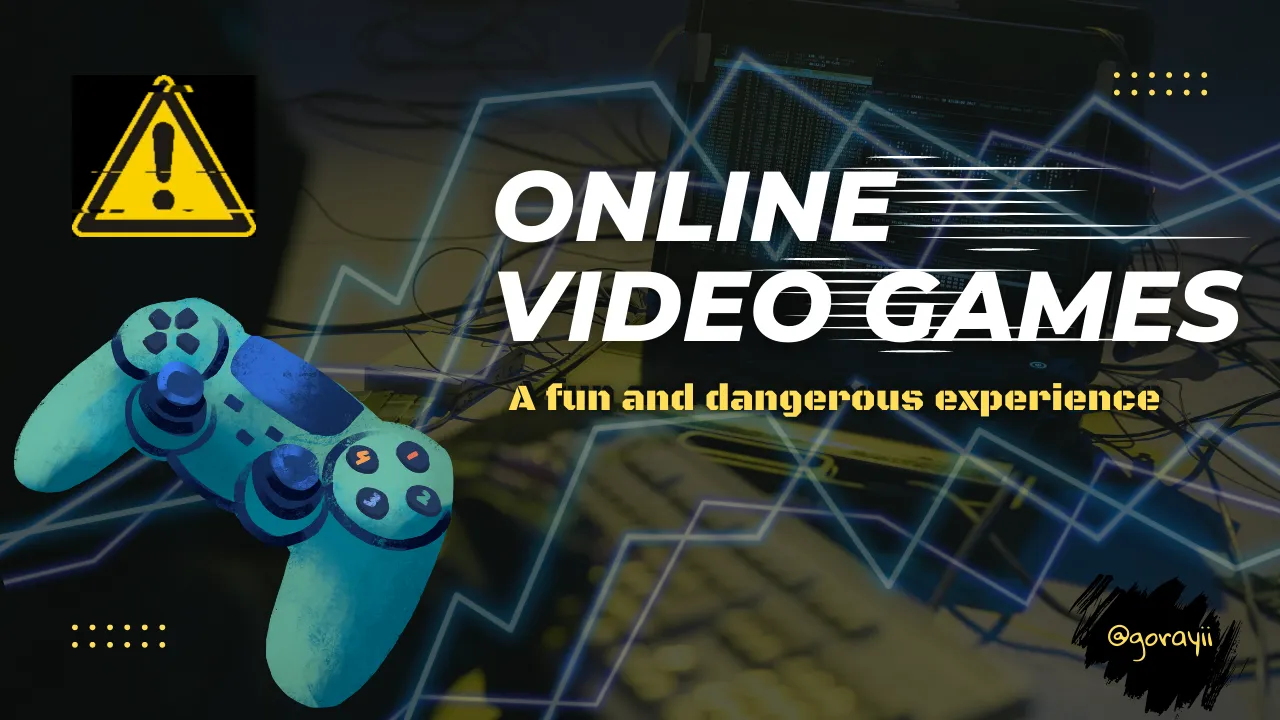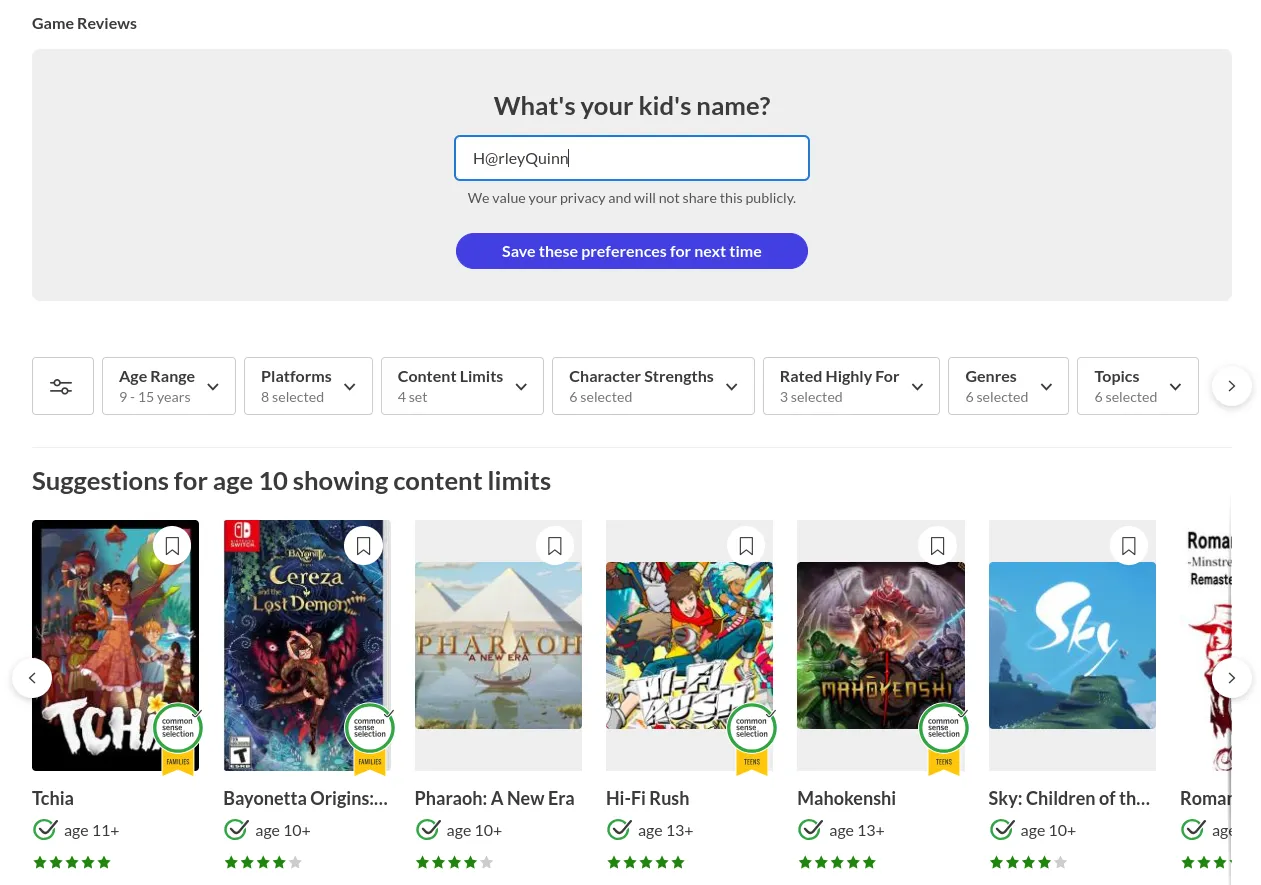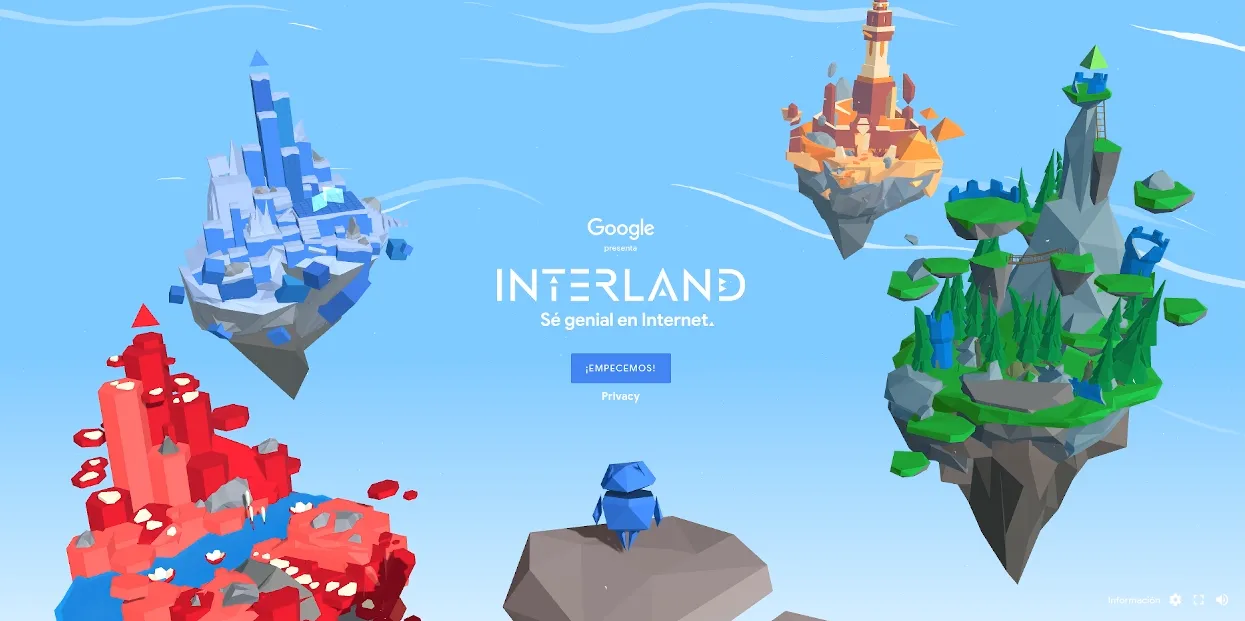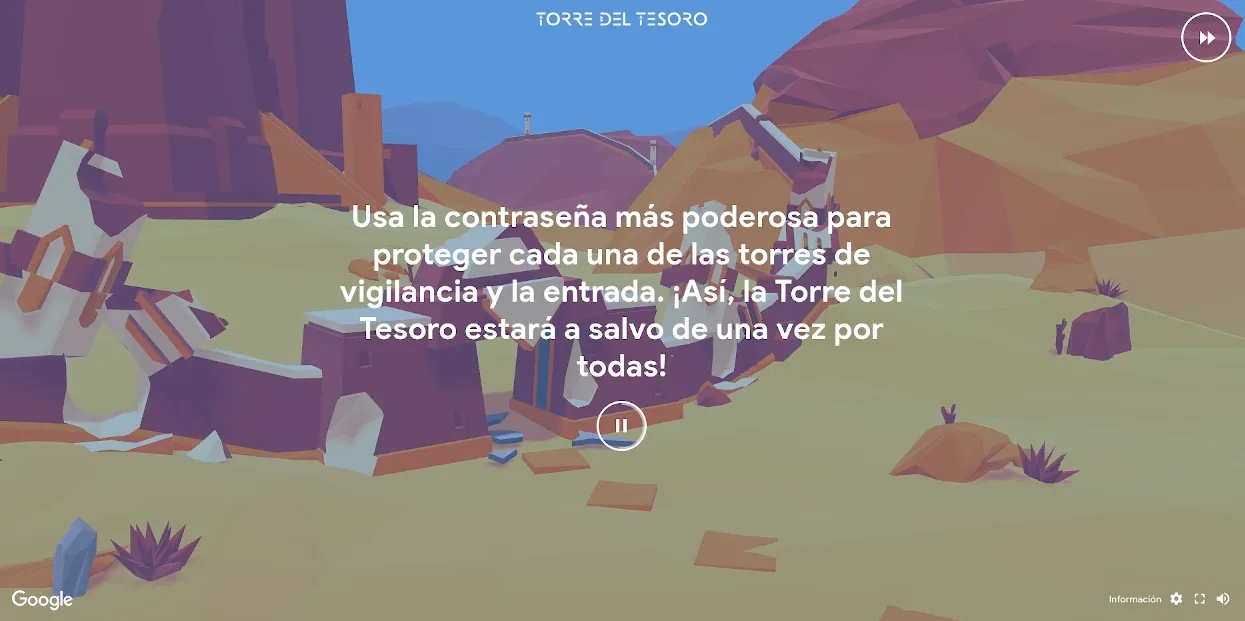

¡Hola, mis estimados geeks!
Con motivo de celebrarse hoy el Día Mundial de los Videojuegos, también conocido como Día del Gamer, he querido compartir esta información con toda la comunidad, especialmente aquellos con hijos o sobrinos, primos, etc, amantes de los videojuegos y los entornos digitales.
En el ámbito de la ciberseguridad y de la informática en general, es común referirnos al usuario final como la "capa 8", una capa que realmente no existe en el modelo OSI o modelo de interconexión de sistemas abiertos. Por tanto, hablar de "error de capa 8" se refiere a situaciones que están fuera del control directo de la red. Estos errores surgen de las acciones del usuario y sus decisiones, y nada tienen que ver con la robustez, seguridad y privacidad de los sistemas informáticos. Sin embargo, son estas acciones las que pueden ocasionar vulnerabilidades que pongan en riesgo tanto la estabilidad de la red como la seguridad del activo más preciado: la información.
A menudo lo menciono: “no importa qué tan robustas sean nuestras medidas y hábitos de seguridad informática, si al final somos nosotros mismos quienes las vamos a infringir”. Y vale mencionar que no lo hacemos con malas intenciones, ni siquiera lo hacemos conscientes de que podemos estar fallando, lo hacemos porque nuestra condición humana nos hace confiar, y lamentablemente en la era digital, la confianza es un error que se paga caro.
! [ENGLISH VERSION]
Hello, my dear geeks!
In celebration of World Video Game Day today, also known as Gamer's Day, I wanted to share this information with the entire community, especially those with children or nephews, cousins, etc., who are lovers of video games and digital environments.
In the field of cybersecurity and computing in general, it's common to refer to the end user as "Layer 8," a layer that doesn't actually exist in the OSI model or Open Systems Interconnection model. Therefore, talking about a "Layer 8 error" refers to situations that are beyond the direct control of the network. These errors arise from the actions and decisions of the user and have nothing to do with the robustness, security, and privacy of computer systems. However, it's these actions that can create vulnerabilities that jeopardize both network stability and the security of the most precious asset: information.
I often mention it: "It doesn't matter how robust our IT security measures and habits are if, in the end, we ourselves are the ones who are going to violate them". It is worth mentioning that we don't do it with bad intentions, we don't even do it aware that we may be failing, We do it because our human condition makes us trust, and unfortunately in the digital era, trust is a mistake that pays dearly.

Los niños son los más vulnerables
Habiendo dicho esto, algo que además ya he repetido en muchas ocasiones, es momento de abordar lo que podría ser la vulnerabilidad más significativa de la llamada "capa 8": los niños, nuestros hijos. En este punto, podríamos analizar el tema desde distintas perspectivas; por un lado, está el hecho de que los ciberdelincuentes hallan en los niños una vía rápida, sencilla y confiable para sortear protocolos de seguridad y perpetrar ataques. Pero, por otro lado, lo que es verdaderamente preocupante, es que en muchos casos son los niños quienes terminan siendo el objetivo final de estos ataques.
Para nadie es un secreto el nivel de exposición que tienen hoy en día los niños y adolescentes a Internet y al mundo digital. Esta exposición no solo involucra las temidas redes sociales que tanto miedo despiertan en los padres, sino también fuentes menos sospechosas como los videojuegos.
En mi época, jugar Mario Bros encerrada en mi habitación sin nadie a mi alrededor era un buen plan. En aquel entonces, lo más disruptivo podía ser un segundo control remoto para que jugara mi hermano o algún primo que nos visitara. Pero actualmente, la dinámica es distinta. Los videojuegos se vuelven realmente emocionantes cuando se juegan en línea con otros jugadores. La tendencia son los videojuegos colaborativos, e incluso se ha añadido el componente de los metaversos, que eleva la experiencia al siguiente nivel. De manera que la exposición a "terceros" es inevitable en este vasto universo digital.
Y es que dentro de ese universo hay de todo, desde aquellos que buscan sano entretenimiento hasta aquellos con intenciones más oscuras. Padres y niños a menudo desconocen con quiénes están interactuando en estos multiversos o plataformas de juegos. Un seudónimo puede ocultar a un ciberdelincuente, un acosador, un pedófilo o incluso una red de narcotráfico. Cualquiera que quiera aprovechar estos espacios para establecer contacto con nuestros hijos. Los motivos pueden ser muchos, desde la obtención de datos hasta la satisfacción de sus deseos más pervertidos. Una vez que establecen contacto, construyen el vínculo de confianza y se hacen pasar por otro niño. Les ofrecen ítems, skins o monedas dentro del juego a cambio de información (datos, fotos, videos), empleando la ingeniería social para lograr sus objetivos.
! [ENGLISH VERSION]
Having said that, something I've repeated many times before is that it's time to address what could be the most significant vulnerability of the so-called 'Layer 8': children, our own kids. At this point, we can analyze the issue from different perspectives. On one hand, cybercriminals see children as a quick, easy, and reliable way to bypass security protocols and carry out attacks. But, on the other hand, what is truly worrisome is that in many cases, children end up being the ultimate target of these attacks.
It's no secret how exposed children and teenagers are to the Internet and the digital world today. This exposure not only includes the dreaded social networks that instill fear in parents but also less suspicious sources like video games.
In my time, playing Mario Bros locked in my room with no one around was a good plan. Back then, the most disruptive thing might have been a second remote control for my brother or a cousin visiting. But nowadays, the dynamics are different. Video games become truly exciting when played online with other players. The trend is collaborative gaming, and it even includes the concept of metaverses, taking the experience to the next level. So, exposure to 'third parties' is inevitable in this vast digital universe.
Within that universe, there's everything from those seeking wholesome entertainment to those with darker intentions. Parents and children often don't know who they are interacting with in these multiverses or game platforms. A pseudonym can hide a cybercriminal, a stalker, a pedophile, or even a drug trafficking network. Anyone who wants to exploit these spaces to make contact with our children. Motives can vary from obtaining data to satisfying their darkest desires. Once they establish contact, they build trust and pose as another child. They offer in-game items, skins, or coins in exchange for information (data, photos, videos), using social engineering to achieve their goals.

La pregunta entonces es:
¿Cómo evitamos esto? ¿Deberíamos prohibirles a los chamos jugar en línea?
Pues, no. Prohibir generalmente aviva la curiosidad por lo prohibido. No es necesario dejar de jugar, mucho menos satanizar los videojuegos. En una balanza, a mi criterio, los videojuegos tienen más pro que contra, destacando su potencial educativo y su efecto terapéutico. No obstante, no todos los videojuegos son desarrollados ni diseñados para el mismo tipo de público, es importante conocer la clasificación y contenido de cada uno, qué temas tratan y a qué edades está dirigido. Me permito recomendarles esta página web para dichas consultas.

Dicho esto, lo que sí debemos hacer es establecer normas de uso y tomar medidas preventivas. Lo más crucial y alarmante es la falta de supervisión adulta. Los padres tenemos el deber y la responsabilidad de velar por nuestros hijos, protegerlos y cuidarlos. Nosotros, nadie más. Dejarlos solos en esos espacios de comunicación es arriesgado y altamente peligroso.
Si somos papás aficionados a los videojuegos, tenemos la ventaja de poder involucrarnos directamente, jugar junto a ellos y entender sus gustos y preferencias. Una partida colaborativa padres e hijos bastaría para enterarnos qué tipos de juegos prefieren, en qué entorno los eligen, qué tipo de contenido están consumiendo; y así, podríamos tener la oportunidad de identificar los potenciales peligros a los que se exponen. Pero los padres que no comparten este interés también pueden encontrar formas de conectarse con sus hijos. Aquí juega un papel determinante la confianza y la empatía. Si nuestros hijos sienten nuestro apoyo sincero e incondicional, sin ser juzgados, reprendidos o señalados, entonces estarán más dispuestos a comunicarse abiertamente con nosotros.
! [ENGLISH VERSION]
So, the question is: How do we prevent this? Should we forbid kids from playing online?
Well, no. Prohibitions generally fuel curiosity for the forbidden. It's not necessary to stop playing, let alone demonize video games. On balance, in my opinion, video games have more pros than cons, highlighting their educational potential and therapeutic effects. However, not all video games are developed or designed for the same audience. It's important to know the classification and content of each one, what themes they address, and what ages they are intended for. I recommend this website for such inquiries.
That said, what we should do is establish rules of use and take preventive measures. The most crucial and alarming aspect is the lack of adult supervision. Parents have a duty and responsibility to watch over, protect, and care for their children. Us, and no one else. Leaving them alone in these communication spaces is risky and highly dangerous.
If we are parents who enjoy video games, we have the advantage of getting directly involved, playing alongside them, and understanding their tastes and preferences. A collaborative game between parents and children would be enough to find out what types of games they prefer, in what environment they choose them, and what kind of content they consume. This way, we could have the opportunity to identify potential dangers they might be exposed to. But parents who do not share this interest can also find ways to connect with their children. Trust and empathy play a crucial role here. If our children feel our sincere and unconditional support, without being judged, scolded, or blamed, then they will be more willing to communicate openly with us.

Riesgos en línea
En los entornos virtuales existen todo tipo de peligros, incluyendo el ciberacoso. A pesar de que no abogo por la prohibición, sí considero que es necesario tomar medidas enfocadas en educar y concientizar a los chamos acerca de los peligros y riesgos en Internet. Una acción inicial, especialmente en niños pequeños, podría ser bloquear el chat en los juegos en línea. La mayoría de estos juegos incluye un chat interno que no es esencial para su disfrute. No es necesario que se comuniquen con extraños en estas salas, no estaría demás recordarles que no deben hablar con extraños. Estos chats abren la puerta para crear contactos y, como resultado, los problemas se agravan.
Si bien es preocupante y peligroso establecer contacto en los chats de juegos, lo que es aún más grave es avanzar al siguiente nivel: contactos en plataformas como Discord, Telegram y WhatsApp. Aquí, el anonimato se pierde y se comparte información más comprometedora, como identidad real, números de teléfono y direcciones. Esta situación no debe alarmarnos, sino motivarnos a actuar a tiempo. No con miedo ni paranoia, ya que eso puede ser contraproducente, sino con determinación y acciones concretas.
Otra medida secundaria es establecer horarios específicos para jugar. Esto ayuda a controlar la exposición y a medir la dependencia de estar conectados constantemente. Este último aspecto puede acarrear problemas desde el aislamiento social hasta el descuido de sus responsabilidades escolares. Incluso, problemas asociados al manejo de las emociones. Es importante abordar las emociones que los videojuegos pueden generar, como la frustración que cualquiera de nosotros siente cuando pierde o falla. Si este tipo de situaciones son difíciles de gestionar o controlar para un adulto, imaginemos lo que significa para un niño sin la debida supervisión.
! [ENGLISH VERSION]
In virtual environments, there are all kinds of dangers, including cyberbullying. Although I don't advocate for prohibition, I do believe it's necessary to take measures focused on educating and raising awareness among children about the dangers and risks of the Internet. An initial action, especially for young children, could be to block chat in online games. Most of these games include an internal chat that is not essential to enjoy the video game experience. There's no need for them to communicate with strangers in these rooms, and it wouldn't hurt to remind them not to talk to strangers. These chats open the door to creating contacts, and as a result, problems escalate.
While making contact in-game chats is worrying and dangerous, what's even more serious is advancing to the next level: contacts on platforms like Discord, Telegram, and WhatsApp. Here, anonymity is lost, and more compromising information is shared, such as real identity, phone numbers, and addresses. This situation shouldn't alarm us but should motivate us to act in time. Not with fear or paranoia, as that can be counterproductive, but with determination and concrete actions.
Another secondary measure is to establish specific playtime schedules. This helps control exposure and measure the dependence on being constantly connected. This aspect can lead to problems ranging from social isolation to neglecting their school responsibilities. It can even lead to emotional management issues. It's important to address the emotions that video games can evoke, like the frustration that any of us feel when losing or failing. If such situations are difficult for an adult to manage or control, imagine what it means for a child without proper supervision.

Aprender jugando
Bien. Ahora, en lo que a seguridad de la información en línea se refiere, las recomendaciones siguen siendo las mismas de siempre: contraseñas complejas pero "recordables", aplicaciones, juegos y equipos siempre actualizados en sus últimas versiones, y por supuesto, antivirus actualizados. No obstante, la medida más importante de todas es educar y concientizar a nuestros hijos acerca de la importancia de valorar y proteger su información. Es imperioso que ellos aprendan a diferenciar entre un contenido público y uno privado, especialmente en términos de niveles de privacidad. Asimismo, deben aprender a desconfiar, a dudar de lo que parece demasiado fácil y bueno. Que su inocencia no sea su condena.
Lo mencioné al inicio, y lo repito: el acompañamiento es crucial. Los niños son inocentes y confían en la bondad y las buenas intenciones, pero lamentablemente en Internet, estas cualidades son escasas. Aunque no siempre podamos supervisar sus actividades en línea, podemos utilizar controles parentales y hacer que el algoritmo trabaje a nuestro favor. No obstante, por encima de toda medida, debemos ser padres presentes.

La educación no tiene por qué ser aburrida. De hecho, dentro de los mismos videojuegos podemos encontrar soluciones. Como es el caso de Interland, el videojuego desarrollado por Google en colaboración con organizaciones expertas en el tema de seguridad digital que enseña a los niños las mejores prácticas para navegar de manera segura por Internet. El objetivo con Interland es educar a los niños para que estén en la capacidad de tomar decisiones acertadas ante situaciones que amenacen su seguridad en línea. De allí que el lema del juego sea "sé genial en Internet".
Interland tiene cuatro mundos, o cuatro islas flotantes, que por separado abordan temas relacionados con la seguridad y la privacidad de la información. Básicamente, el juego se centra en los pilares de la seguridad de la información (confidencialidad, integridad, disponibilidad y autenticación). Además de transmitir buenas prácticas de seguridad informática, el juego también busca educar a padres e hijos sobre los riesgos a los que se enfrentan en el entorno digital y cómo protegerse y tomar medidas en cada caso. Finalmente, al completar cada isla, los niños recibirán un certificado reconociendo sus logros y aprendizajes.
 |
 |
 |
 |
Se los recomiendo muchísimo. Lo pueden jugar en línea, por lo que no requiere ninguna instalación. Además, pueden jugarlo desde el navegador web en su versión de escritorio o desde su dispositivo móvil. Como mamá de dos gamers cibernautas y como especialista en el área, les recomiendo encarecidamente que lo prueben, ya que solo les tomará alrededor de una hora, o menos, completar el juego; pero, las lecciones aprendidas tendrán un impacto a largo plazo en padres e hijos.
! [ENGLISH VERSION]
Alright. Now, in terms of online information security, the recommendations remain the same as always: complex but 'memorable' passwords, applications, games, and devices always updated to their latest versions, and of course, updated antivirus software. However, the most important measure of all is to educate and raise awareness among our children about the importance of valuing and protecting their information. It's imperative for them to learn to differentiate between public and private content, especially in terms of privacy levels. Likewise, they need to learn to be skeptical and to doubt what seems too easy and good. Let their innocence not be their downfall.
I mentioned it at the beginning, and I will repeat it: supervision is crucial. Children are innocent and trust in goodness and good intentions, but unfortunately on the Internet, these qualities are rare. Although we cannot always supervise their online activities, we can use parental controls and make the algorithm work in our favor. However, above all measures, we must be present parents.
Education doesn't have to be boring. In fact, within video games themselves, we can find solutions. Like Interland, the game developed by Google in collaboration with organizations knowledgeable about digital security, which teaches children the best practices for safely navigating the Internet. The goal of Interland is to educate children so they can make informed decisions in situations that threaten their online safety. Hence, the game's motto is 'Be Internet Awesome.'
Interland has four worlds, or four floating islands, each addressing topics related to information security and privacy. Basically, the game focuses on the pillars of information security (confidentiality, integrity, availability, and authentication). In addition to promoting good cybersecurity practices, the game also aims to educate both parents and children about the risks they face in the digital environment and how to protect themselves and take action in each case. Finally, upon completing each island, children will receive a certificate recognizing their achievements and what they've learned.
I highly recommend it. You can play it online, so no installation is required. Moreover, you can play it from your web browser on your desktop or from your mobile device. As a mother of two cyber gamer kids and as a specialist in the field, I strongly recommend you try it because it will only take about an hour or less to complete the game, but the lessons learned will have a long-term impact on both parents and children.

Translation: DeepL Translate.
Design: @gorayii in the Canva App.
Video, editing & photography: @gorayii with the Apps CapCut, Kdenlive & OBS Studio.
Source: Audio and video [1]/[2]/[3]/[4]/[5]/[6]/[7]/[8]/[9]/[10]/[11]/[12] resources available on Pixabay, copyright-free.
Other sources: Interland Website


▶️ 3Speak


